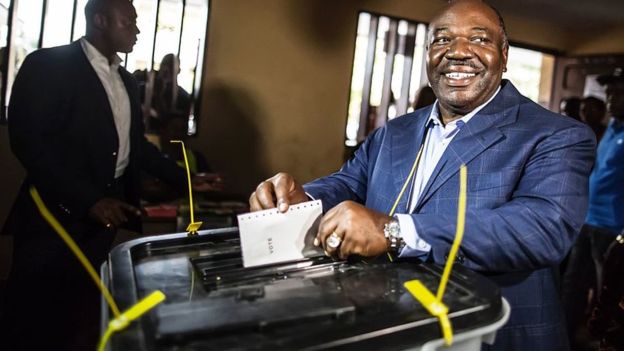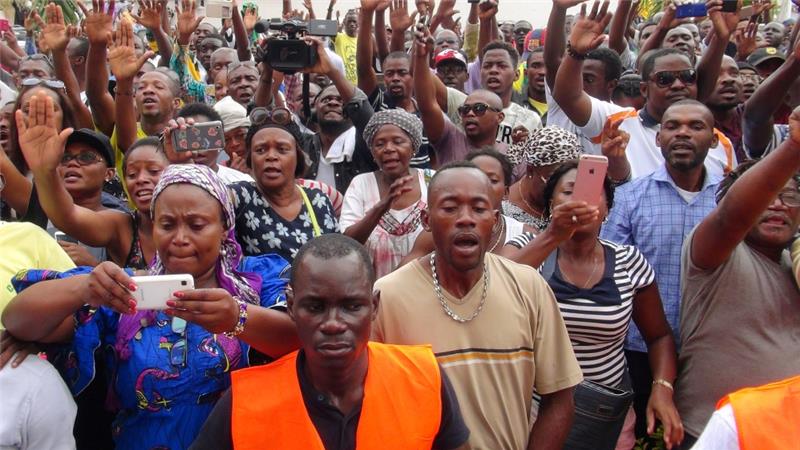Following the presidential elections that took place on August 27, Gabon has witnessed great outrage as opposition presidential candidate Jean Ping challenged election results in court.
The two presidential candidates, opposition leader, Jean Ping, and leader of the nation, Ali Bongo, were basically neck-and-neck at the polls. Bongo had won with just under 6,000 votes, most of which are believed to come from his home-province of Haut-Ogooue. Ping has spoken out about his suspicions regarding the voting results of the province which saw a 99% turnout, 95% of whom voted for Bongo.

According to Al Jazeera, the head of the E.U. observation mission in Gabon, Mariya Gabriel, gave a statement on Tuesday saying: “An analysis of the number of non-voters as well as blank and disqualified votes reveals a clear anomaly in the final results in Haut-Ogooue”. Gabriel went on to say that as a result of this, the integrity of the province’s provisional results was compromised.
Bongo, unimpressed with the EU representative’s statement, gave a counter statement saying that the EU mission was biased and that it was “overstepping its mandate,” Al Jazeera reported. Bongo, who has also accused Ping of cheating, said that if “anomalies” are to be identified, then the same should go for Ping’s fiefdom. Bongo added that according to the law, only the Constitutional Court can order a recount.
The chaos that has erupted since Bongo’s re-election has caught international attention; the U.S., the E.U. and the country’s former colonial power France have all questioned the validity of the poll results, especially those from Haut-Ogooue. The African Union is also concerned and planned to send a mediation mission to Gabon, however, Reuters reported that the head of the mission and chairperson of the A.U., Chad President Idriss Deby, postponed the mission indefinitely because he was “tired” after having attended a summit in China.
Justice Minister resigns after Bongo is re-elected
Gabon’s Justice Minister, Seraphin Moundounga, resigned on Monday September 5 after government refused to recount the locally and internationally criticised election results. According to Al Jazeera, Moundounga told Radio France Internationale (RFI) in an interview that he stepped down due to the government’s failure to respond to concerns relating to the “need for peace and for the consolidation of democracy”.
Although the government initially downplayed the now former Justice Minister’s resignation, Al Jazeera’s correspondent reporting from Libreville stated that the decision was humiliating for government and a “significant blow” to Ali Bongo.

Bongo under scrutiny
The Bongo family have been in power since 1967. Omar Bongo, Ali’s father and predecessor, led Gabon for 47 years, during which he was criticized for his authoritarian-style governing, for embezzling oil revenues and bribery. According to an article published by the BBC, the late president was also involved in a long-running fraud probe French police were investigating with regard to the source of money spent on assets in France. In 2009, Omar Bongo died in a hospital in Barcelona, Spain, due to complications with colon cancer. He was Africa’s longest serving president at the time and was succeeded by his son, Ali Bongo, who won the presidential elections in 2009.
Many believe that Ali Bongo is not doing enough to adequately redistribute the wealth of the country obtained from its oil production. The country saw various riots and protests in 2009 the first time Ali Bongo had won the election. It would appear history is repeating itself. In a country that is rich in oil, yet its people live in poverty, it raises the question as to where the nation’s wealth goes.
It is a recurring problem on the African continent that leaders, especially those who led their respective nations to freedom, tend to extend their presidency as long as they can, denying criticisms of election rigging. Furthermore, the Bongo’s luxurious lives have raised many eyebrows and questions. In fact, in April 2016, various luxurious properties in France owned by the Gabonese family were seized. According to RFI, some of these included villas and mansions.
Furthermore, the Bongos were found to have had hundreds of millions of euros in the form of secret bank accounts in Monaco and elsewhere following an investigation on three African presidents who were believed to be corrupt and using their nation’s money to acquire expensive properties in France.
It is detrimental to the progress of a nation for corruption of such a degree to thrive. The money that went to incognito accounts and luxurious property could have been allocated to the development of the Central African country. What is further alarming is how late president Omar Bongo opted to be treated for his illness in a European country as opposed to his own.
Source: Aljazeera
